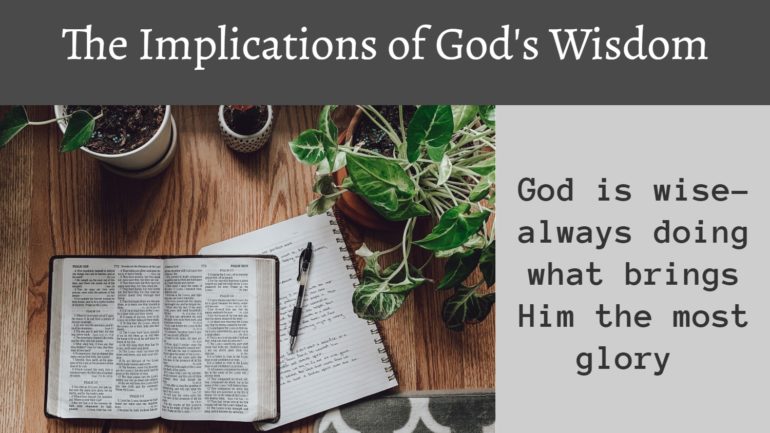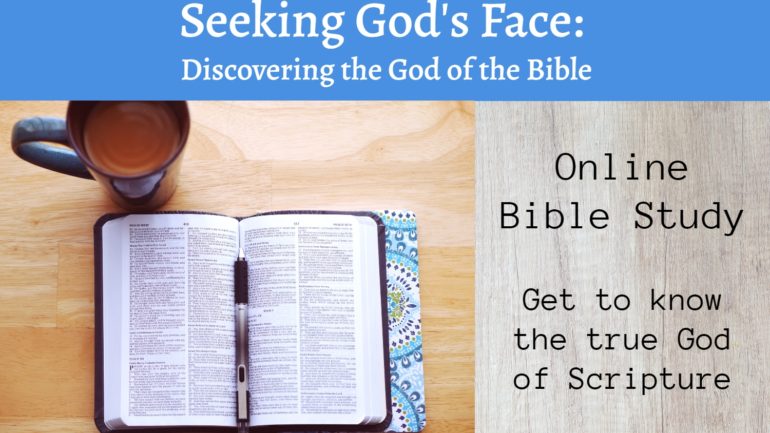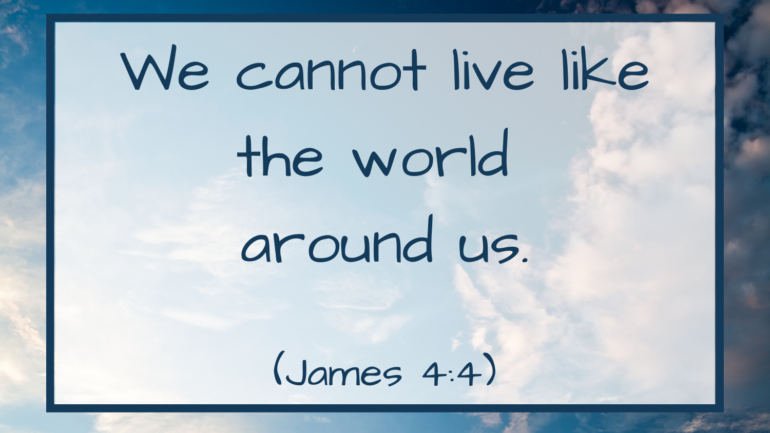God’s wisdom means that His choices are always going to result in the best outcome, or highest end, in any situation.
We read in Romans 11:33, “Oh, the depth of the riches and wisdom and knowledge of God!” According to Paul, God has both wisdom and knowledge. Is there a difference between these two things, though, or is Paul just being repetitive for emphasis?
What is wisdom?
Actually, there is a difference between knowledge and wisdom. Knowledge is possessing the facts. Wisdom is knowing what to do with those facts. Wisdom involves achieving the best outcome or making the best decision with the knowledge that you possess.
We may feel like we’re pretty smart, but we don’t always know how to use our knowledge in the best way. Sometimes, we struggle to make wise decisions because we don’t know which choice is best. We can’t see the outcome of our decisions, and we have to rely on the information that’s right in front of us. We often lack wisdom.
That’s not a problem for God, though. God has both knowledge and wisdom. God knows everything. He knows everything that has happened, everything that is happening, and everything that will happen. He never learns anything. Nothing ever surprises Him or catches Him off guard because He already knows it. God also knows every possible outcome for every choice we ever face, so He knows which choice will bring about the best outcome for us.
God’s idea of the best outcome in a situation is what will bring Him the most glory and bring His people the greatest good.
Steven Lawson
God’s choices are always going to result in the best outcome, or highest end, in any situation. His definition of the best outcome and ours may differ, however. We want what will make us happy or healthy or wealthy. God’s idea of the best outcome in a situation is what will bring Him the most glory and bring His people the greatest good. He also always knows the best means by which to bring that about. We read in Job 12:13, “With God are wisdom and might.” He has wisdom, so He knows the best plan, and He has might, or the ability to carry out that plan.
God’s Wisdom in Creation
One way that God exhibits His wisdom is in creation. Proverbs 3:19-20 says, “The Lord by wisdom founded the earth; by understanding he established the heavens; by his knowledge the deeps broke open, and the clouds drop down the dew.”
The Best Method of Creation
God knew that creating a world full of people to worship Him would bring Him glory. Out of all the ways He could have created the world, He chose the best method of creation. If He had chosen to create through evolution, as many people claim, He would have lost glory. It’s hard to see the hand of God at work in evolution. However, by merely speaking everything into existence from absolutely nothing, it leaves no doubt that there must be a Creator. God alone is the only one with the power to do this and He alone gets the glory for creation.
The Intricacy of Creation
We also see God’s wisdom in the intricacy of creation. God alone was wise enough to know how to create a world perfectly suited for human life. For instance, Earth is the perfect distance from the Sun. If it were any farther away, it would be too cold to support life. If it were any closer, we would burn up. The human body is also very intricate. Only a wise Creator would be able to create a being whose organs, muscles, etc. all work so perfectly together to sustain life.
The Perfect Order of Creation
God, in His wisdom, also knew the perfect order in which to create all things. He created light first, because light is necessary for life. God created the atmosphere next, so that plants, animals, and people would be able to breathe. He created plants before animals and mankind in order to provide food. Had creation occurred in a different order, things wouldn’t have been able to survive.
God’s Wisdom in Providence
Another way that God exhibits His wisdom in in providence. Providence means that God is guiding and directing all things towards His predetermined end. He has a master plan for the world that He created. He is working through all things to make sure that His plan is fulfilled. We see this in Romans 8:28, where Paul writes that all things work together for good for those who love God. This doesn’t say that all things are good, but that God can bring good from anything.
We see God’s providence throughout Scripture. God’s original plan was to create a for Himself a people to bring Him glory. Time after time, it looks like that plan is going to fail. However, God knew all along how things would play out. We see God working in every situation to make sure things happen just the way He wants them to.
Examples of God’s Providence
In the story of Joseph, for example, it’s hard to see how a parent playing favorites and jealousy among brothers can possible be part of God’s plan. God works through that, though, to put Joseph in just the right place to save His people. Even Joseph recognizes God’s hand in the events of his life. He tells his brothers, “As for you, you meant evil against me, but God meant it for good, to bring it about that many people should be kept alive, as they are today” (Genesis 50:20). This is God’s wisdom at work.
Also, in the story of Esther, God is never even mentioned. However, it’s clear that He is orchestrating the events of the story…from a queen defying her king, to a beauty contest where the prize is becoming the new queen, to Esther winning the king’s favor, to Mordecai being in the right place to overhear a plot which saves the king’s life. God, in His wisdom, is using all of these things and more work together to bring about the salvation of the Jews.
Only a God with infinite wisdom could possibly use the infinite knowledge that He has to organize every event in human history to work together in the just right way to bring His perfect plan to completion.
God’s Wisdom in Salvation
The Plan of Salvation
A third way that God exhibits His wisdom is in salvation. To us, God becoming a man and dying a horrible death on the cross seems like a foolish way to save sinners. Surely, there was an easier way, a way that didn’t involve the death of the Son of God. Jesus’s death on the cross was actually part of God’s master plan. Acts 2:23 says that Jesus was delivered up, crucified, and killed according to the definite plan and foreknowledge of God.
We may not ever be able to fully understand why God chose to save sinners the way that He did. In His infinite wisdom however, God knew that this was the best way to bring glory to Himself and to bring about the greatest good for mankind. By choosing a plan that seems foolish to us, it leaves no doubt that salvation is from God. We would choose a works-based plan of salvation, because we want to feel like we contributed something, or we feel like we need to earn our salvation. But by making it a free gift, God made sure that we can’t take any credit for our own salvation. God alone gets the glory.
The Payment for Salvation
Also, because of our sin, we were totally separated from God. On our own, we could never have paid the penalty for our sins. We owed too great of a debt. God knew that, and in His wisdom, He knew that the only one that could pay our debt was Christ. We needed a substitute to take our place, but not just any substitute would do. We needed a perfect, sinless substitute.
Jesus, because of His deity, was the only one capable of living a sinless life. However, the substitute also needed to be representative of mankind, to be one of us, to be eligible to pay our debt. So, God sent His Son to born of a woman, born under the law so that He might redeem those under the law, as Paul writes in Galatians 4:4-5. Also, the wages of sin are death, but God could not die. Therefore, He had to become man in order to die in our place. God knew exactly what was necessary to save for Himself a people, and He knew the best means by which to achieve that salvation.
Implications of God’s Wisdom
Because God is wise, we can trust Him to do what is best for us.
This goes back to our discussion of God’s providence. God is in control of all people and events, and that should bring us peace and comfort. Nothing happens that’s outside of God’s plan. As R.C. Sproul says, “There are no maverick molecules in a universe where God is sovereign.”
We know that God is capable of making the best decisions to bring about the best outcome. He will work out all things for His glory and our good. Even in tough times, we can trust that God will use our pain and sorrow and suffering as part of His plan. We may not always see the good outcome of our pain, but we can have faith that something good will come from it.
Without Christ, no one can truly be wise.
Paul writes that all the treasures of wisdom and knowledge are hidden in Christ (Colossians 2:3). We seek wisdom from a variety of sources. We read self-help books, we go to seminars, we ask friends or even counselors for advice. There’s nothing necessarily wrong with those things. However, if the advice that we receive is not based on Jesus and His teaching, then it’s foolishness and should be ignored. According to Steven Lawson, “Without Christ, people are just clever fools.”
We also read in Psalm 111:10 that the fear of the Lord is the beginning of wisdom. Trying to live our lives apart from God is extremely foolish. God is the source of all truth and all knowledge. Without Him, all of the knowledge that we gain is worthless. If wisdom is knowing how to use the knowledge that we have to bring about the best outcome in a situation, that is impossible without fearing God since the best outcome in any situation is what brings the most glory to God.
God is willing to share His wisdom with us.
Life is hard and requires wisdom to know how to deal with the challenges that we face. We all have questions about things that struggle with. As I’ve said before, we look for wisdom in a variety of sources, but if you look at ten different sources, you will get ten different opinions. How can we find the answers that we need?
We read in James 1:5, “If any of you lacks wisdom, let him ask God, who gives generously to all without reproach, and it will be given him.” So, God promises to give us wisdom if we just ask for it. Proverbs 2:6 says, “The Lord gives wisdom; from his mouth come knowledge and understanding.” This verse says that knowledge and understanding come from the mouth of God, which would be through words, primarily the written word of Scripture. So, all true wisdom comes from God and can be found in the truth of the Bible. In fact, there is no wisdom apart from God. As we’ve already said, the best the world has to offer is just foolishness compared to God’s wisdom. So, as we attempt to sift through all the worldly advice that we’re bombarded with, we have to evaluate it by Scripture.
This post is part of a series entitled Seeking God’s Face: Discovering the God of the Bible, which is based on a Bible study I’m teaching at my church. In this study, we’ll be rethinking our impressions of God by searching the Scriptures to find out who He really is. You can find other posts, as well as additional Bible study resources, here:
SEEKING GOD’S FACE: DISCOVERING THE GOD OF THE BIBLE
The information in this post was based on the following resources:
In His Image: 10 Ways God Calls Us to Reflect His Character by Jen Wilkin
The Attributes of God DVD by Steven Lawson
Unless otherwise noted, Scripture quotations are from The ESV® Bible (The Holy Bible, English Standard Version®), copyright © 2001 by Crossway, a publishing ministry of Good News Publishers. Used by permission. All rights reserved.







Seeking God's Face: Discovering the God of the Bible - She Lives Worthy %
[…] The Implications of God’s Wisdom (blog post) […]